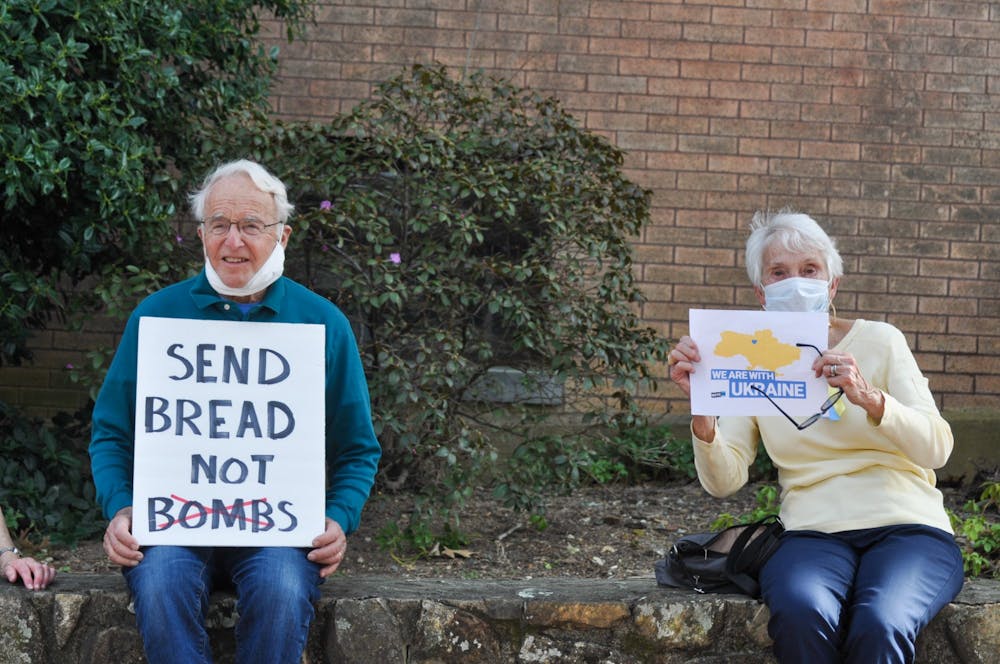This week, members of the UNC community have organized several events in solidarity with Ukraine. This comes at a time where Russian forces are actively invading the Eastern European nation.
Events to show support to victims included a vigil outside Dey Hall put on by the Department of Germanic and Slavic Languages and Literatures and the Russian Flagship Program, panels featuring academic and professional experts and a history and political science teach-in meant to educate students.
However, some may feel these events are insignificant in the grand scheme of things, pondering if all this will accomplish something. The answer is yes — protests do work.
First off, protests are indicators that a certain group or community is unhappy and will not put up with the current state of events. It's essentially a demand for systematic change.
As Frederick Douglas once said, “power concedes nothing without a demand.”
We witnessed it with the swift arrest of Derek Chauvin in response to the murder of George Floyd following widespread protests.
And it is each protest that matters. From Minneapolis, Berlin to Chapel Hill, the display of a group of people demanding justice is powerful. They demonstrate the power in student movements, such as Black Student Movement.
Some may say the effect of UNC students protesting for Black Lives Matter is minimal. However, when we demand equity and justice, it shows we are united together for a greater cause than ourselves. There is no cause or event too little to display support.
All of it lies in the power of solidarity. Solidarity entails taking action on the front lines, with more than just words, to improve the circumstances of others. It shows that no matter how large or small the gathering, we are fighting for change.




